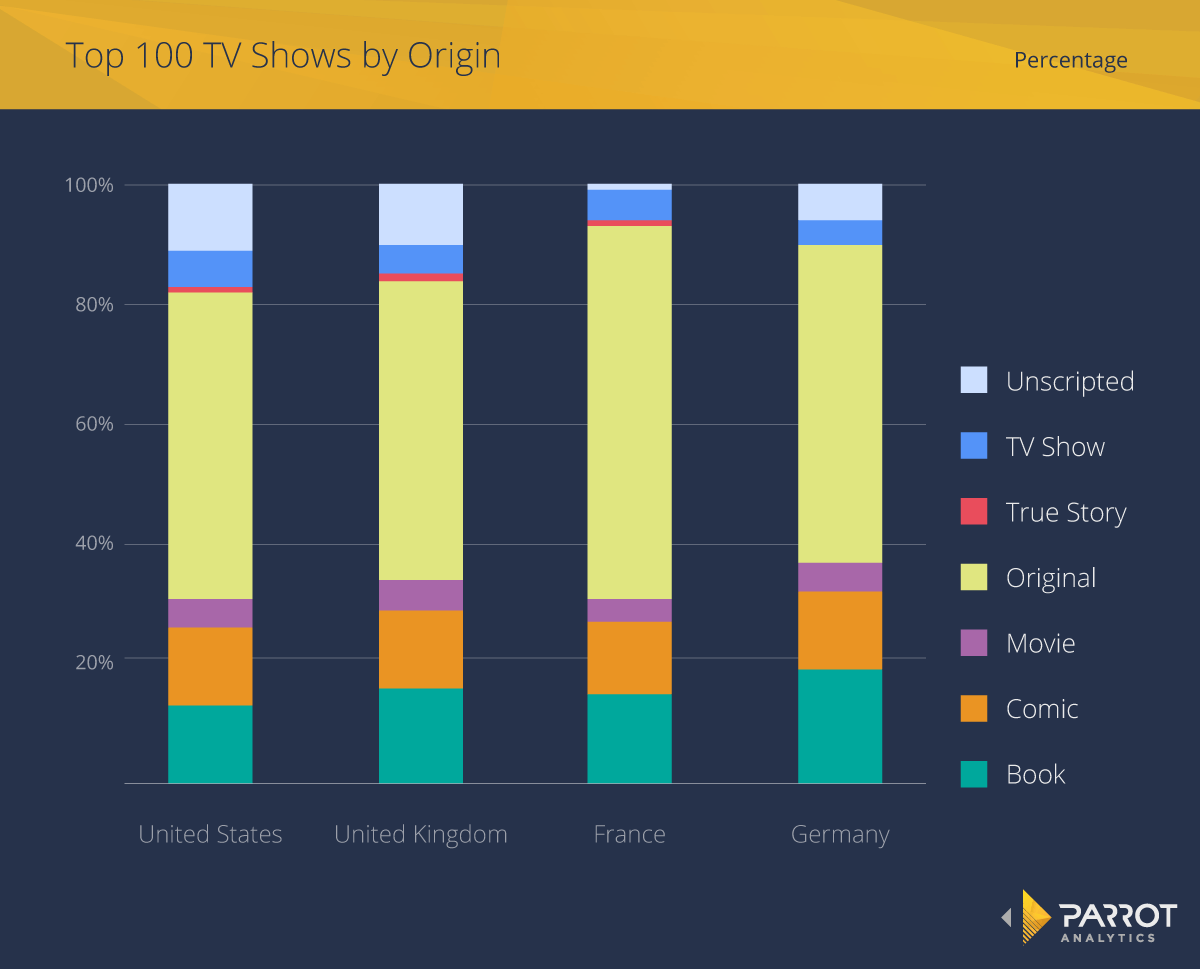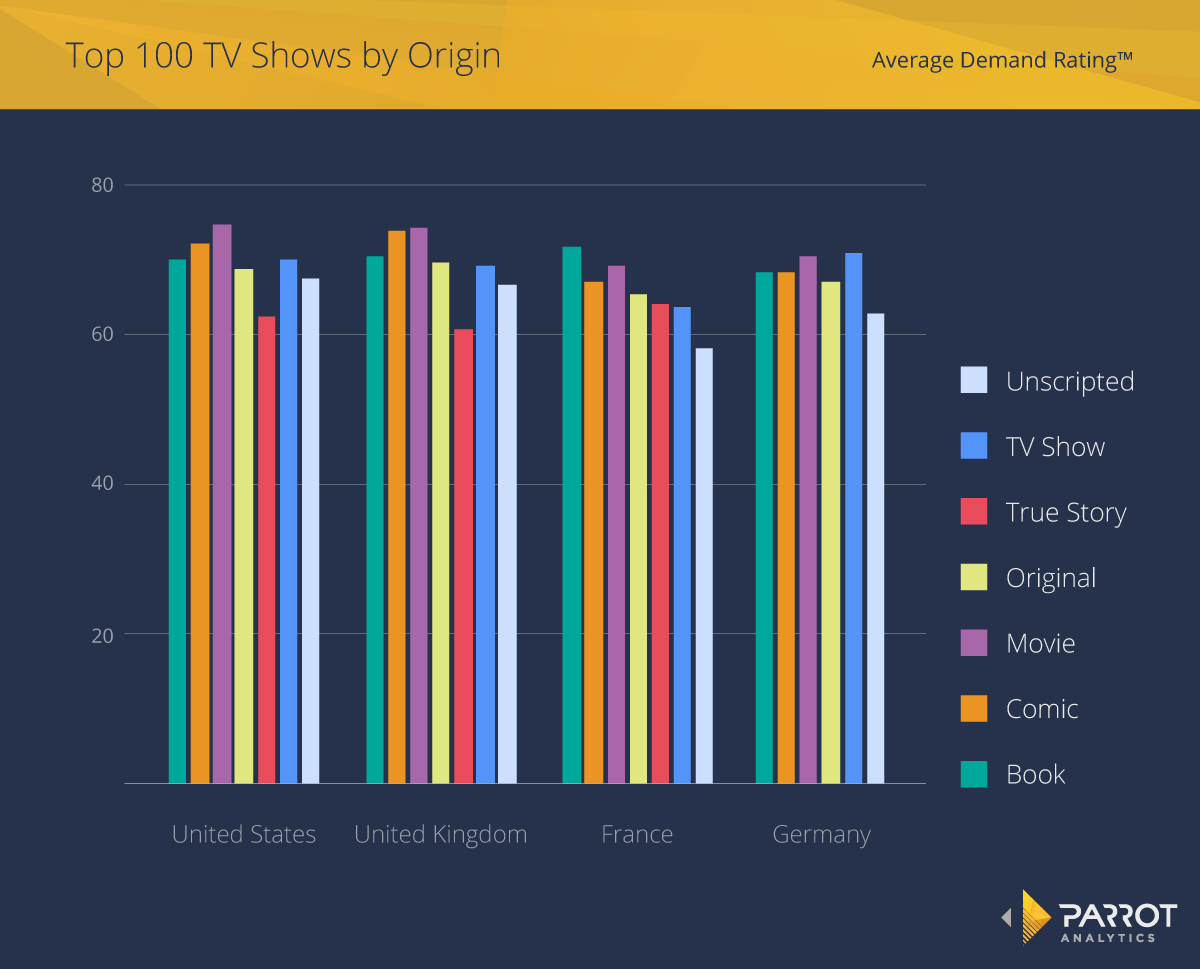Do TV Shows Based on Existing Properties Do Better Than Original Stories?
Inspiration for TV series can come from many different sources: from novels, comic books, films, historical events, or from the creator’s imagination. Le Monde recently conducted a study into whether movies based on books performed better than original stories, finding that the most successful films have become dominated by films based on existing properties (books, comics, etc.) while original screenplays only account for about 40%. Is the same true for TV shows?
We ranked the top 100 English-language TV shows in four markets—the United States, United Kingdom, France and Germany—by their average demand in 2016, then classified each show. Similar to the Le Monde study, we grouped the shows by whether it was based on a book, comic, movie, previous TV series, true story or original script. Unscripted series, such as reality, talk or documentary shows, were also classified together. The breakdown of the top 100 in each country by origin is shown below:

In all four markets, original stories account for more than half of the top 100 shows. Series based on books and comics are second in popularity, having about 14% of the top 100 each. Unscripted shows have about 10% in the United States and United Kingdom but much less in France and Germany; perhaps these markets prefer unscripted series in their own language. Remakes of TV shows account for about 5% of the top 100. Like films analysed by Le Monde, shows based on true stories (in this case, Narcos and The People v. O.J. Simpson) are the least common, having 1% or less of the top 100 spots.
Unlike films, television screens are still dominated by original stories, which account for about 54% of the top titles compared to the 40% for movies. However, do these original shows have a greater average demand than shows based on pre-existing properties?

The Demand Rating™ for shows of each origin type are averaged in each market. From the plot, shows based on books, comics and movies have more average demand than original stories in all four markets, though not by a statistically significant amount. Remakes of other TV shows have more demand than originals in the United States and Germany, but have about the same demand in the United Kingdom and slightly less in France. Original stories have consistently more demand than unscripted series and true stories.
Overall, much like films, shows based on existing properties (books, comics, movies) have slightly more demand than original stories and remakes. This result seems reasonable: shows based on other media have a pre-built audience in the fans of the other work. For many properties, this audience will not only watch the TV series, but also discuss how it differs from the book, talk about upcoming events in the story, etc. on social media, promoting the TV show and increasing demand for it.
Of course, breakout original stories such as Breaking Bad can also achieve the same or even higher levels of discussion and demand. In addition, we hypothesize that truly successful shows based on other media, such as The Walking Dead or Game of Thrones, transcend their original audience (fans of the original work) to attract new, equally rabid fans to the franchise. Getting to that point of high demand just may be easier for shows based on existing properties, leading to their higher average demand.

